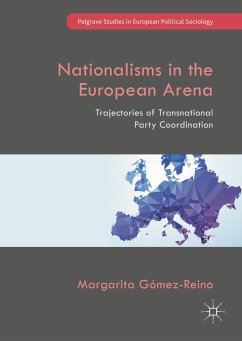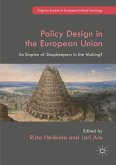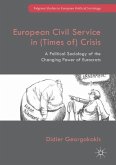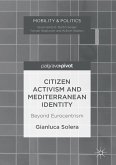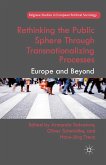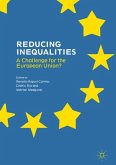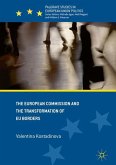This book explores how the multiplicity of nationalist parties across the European Union have embraced or refused the process of European integration and made it a platform for transnational coordination in the European arena. The author analyzes how opposing pro-European minority nationalist parties and Eurosceptic populist nationalist parties have diversely politicized European integration over the past three decades and engage in different patterns of Europeanization. Tracing their divergent trajectories of transnational coordination, the book examines the common challenges these opposing nationalist party families face and their systematic fragmentation in the European arena. The book offers a novel approach to understanding the conditions for the emergence of truly European nationalist party families, based on the interaction of ideological, strategic and institutional variables that underpin the Europeanization of heterogeneous nationalisms.
Nationalisms in the European Arena will be of interest to students and scholars across a range of disciplines including sociology and political science. It contributes to the increasing literature on identity politics in the European Union and reveals the mechanisms behind why the European arena is adverse to the political translation and organization of domestic nationalisms as distinctive European actors.
Nationalisms in the European Arena will be of interest to students and scholars across a range of disciplines including sociology and political science. It contributes to the increasing literature on identity politics in the European Union and reveals the mechanisms behind why the European arena is adverse to the political translation and organization of domestic nationalisms as distinctive European actors.

